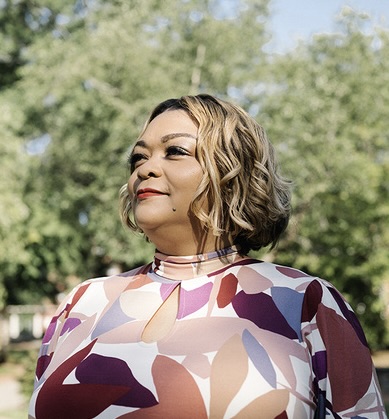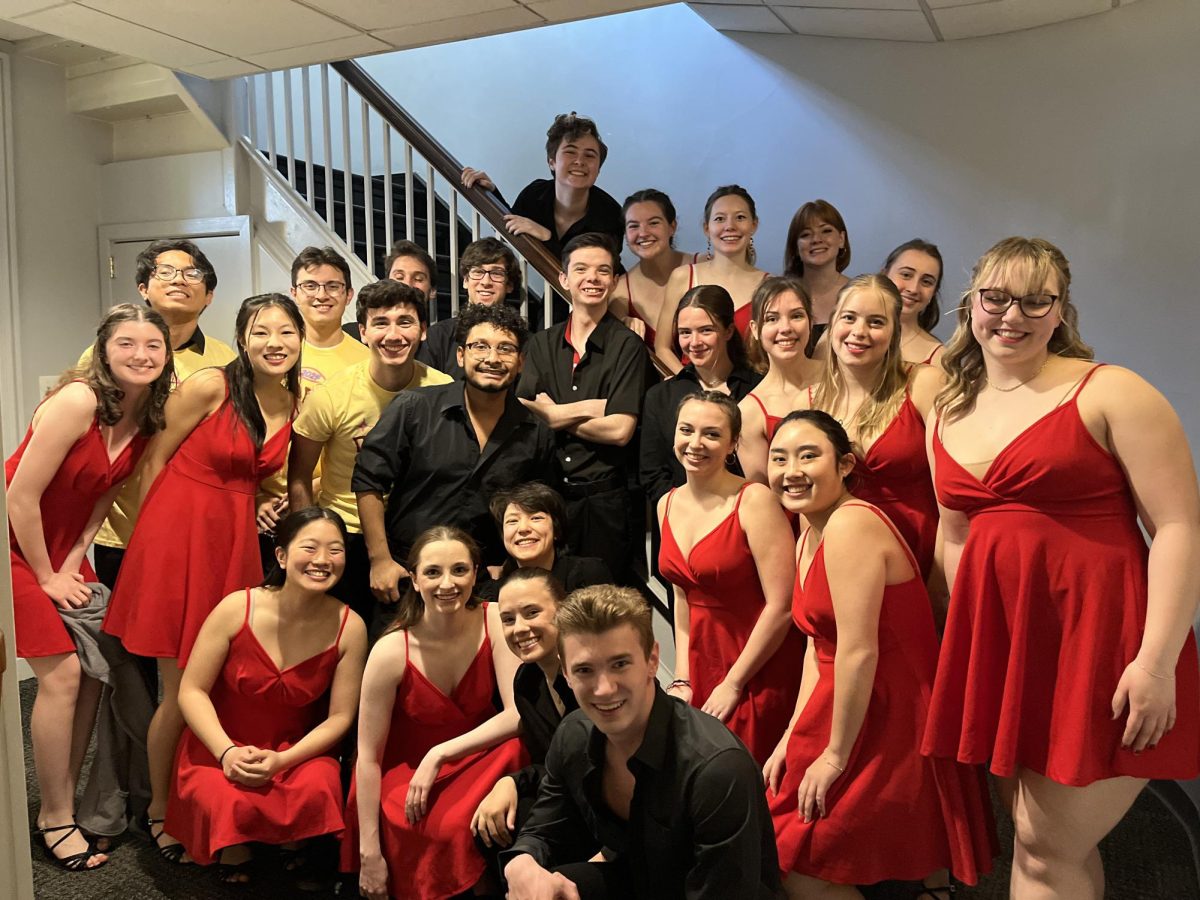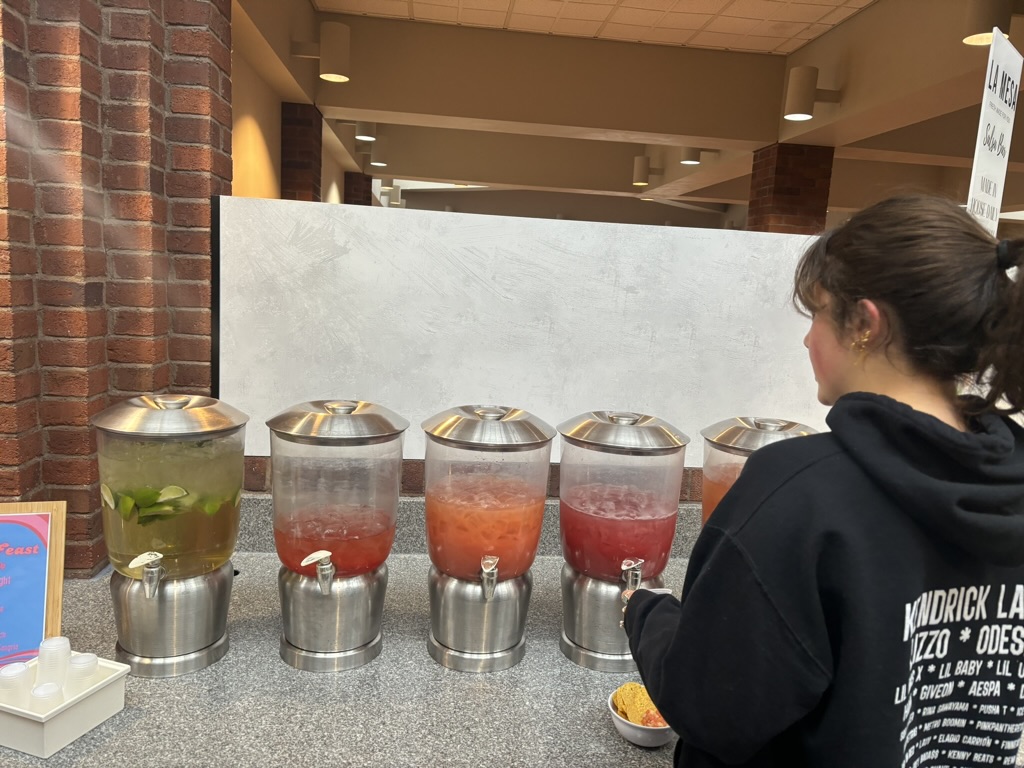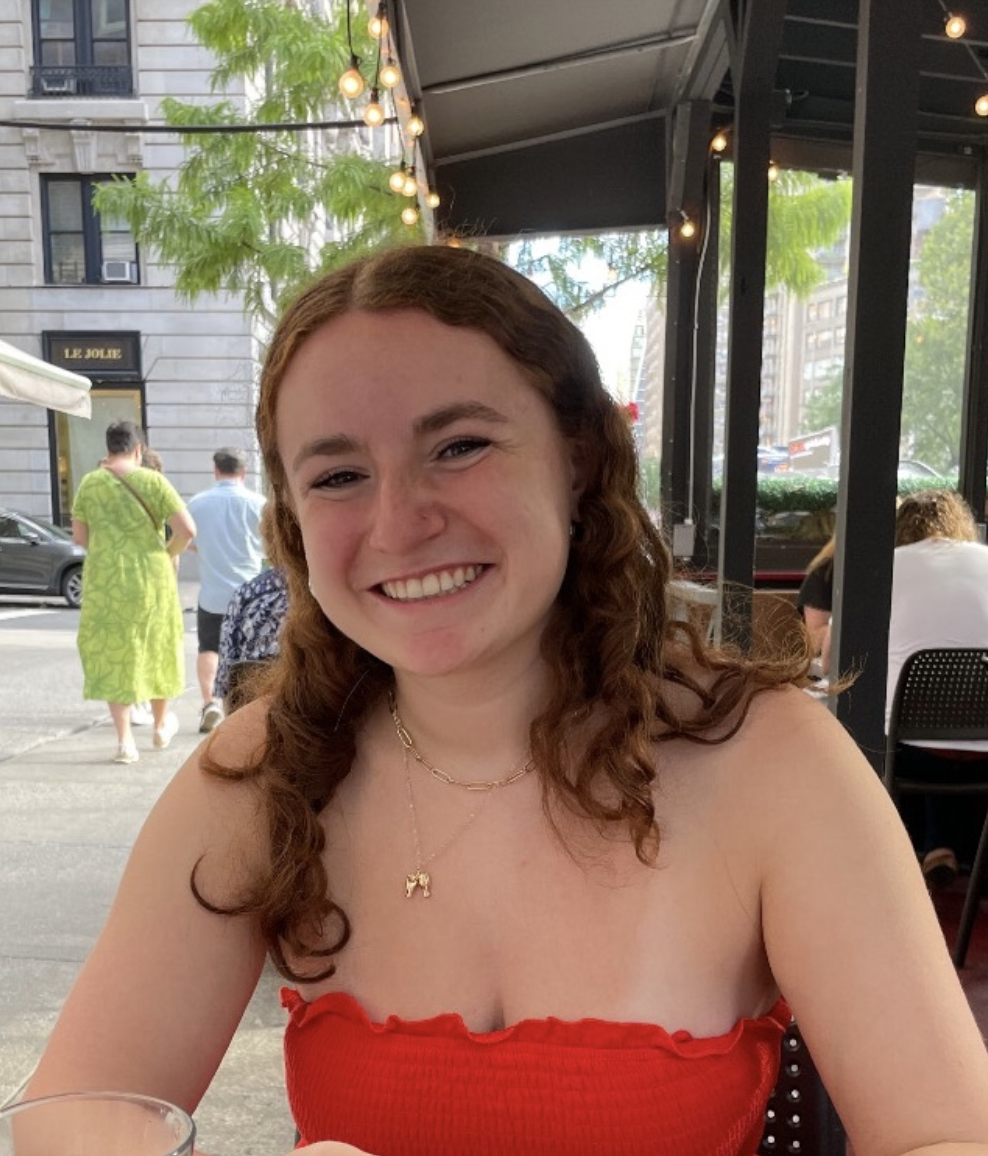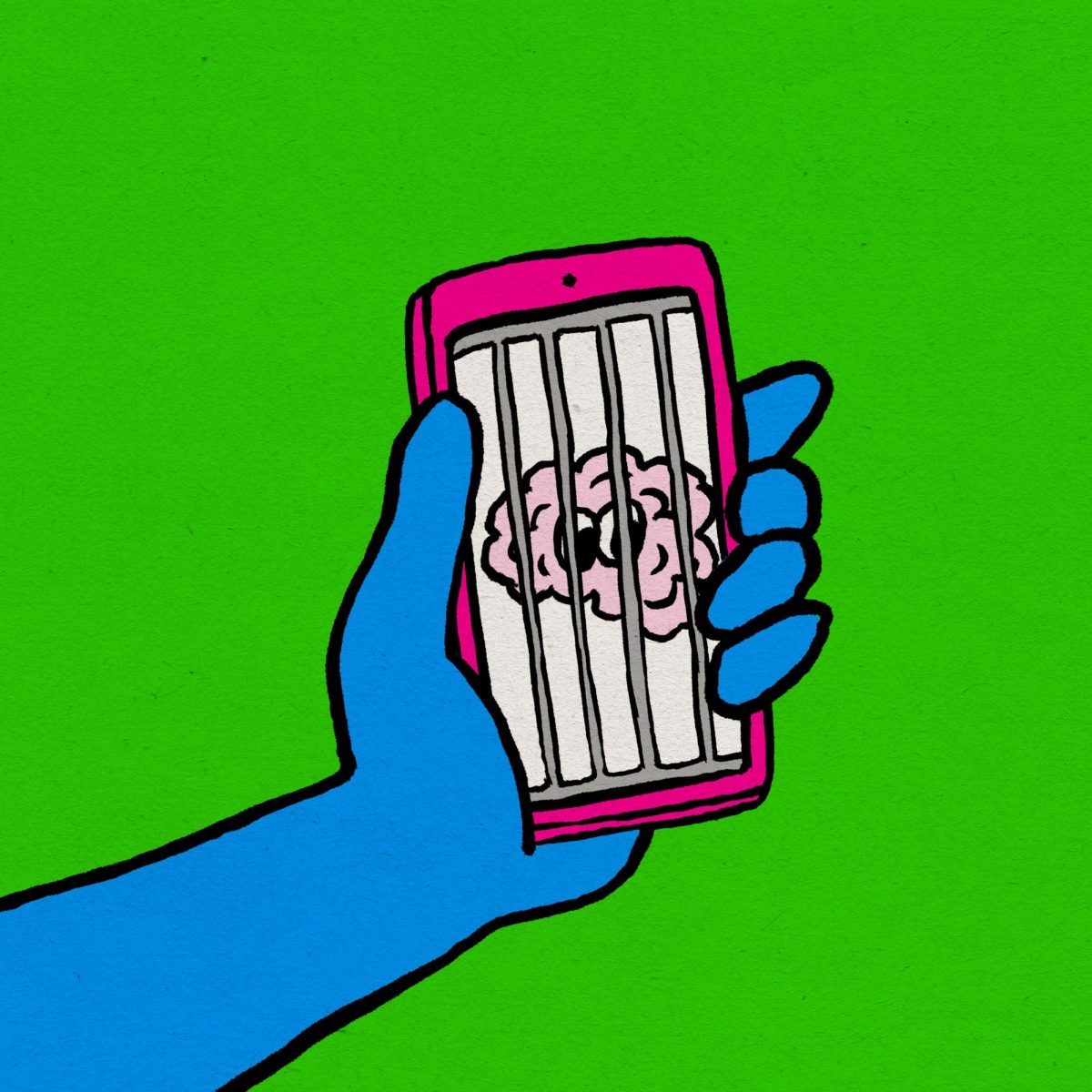On Feb. 29, the Africana and Latin American studies program hosted “Drop and Give Us Fitty: Hip-Hop’s Anniversary as the Culture,” a conversation between Assistant Professor of History Dionne Bailey and guest speaker Dr. Regina N. Bradley, an acclaimed writer and researcher of the black American South.
The event began with the showing of two music videos: “So Fresh, So Clean” by OutKast and “Conceited” by Flo Milli. These song choices were carefully curated and inspired in part by Dr. Bradley’s book, “Chronicling Stankonia: The Rise of the Hip-Hop South,” which explores hip-hop duo OutKast’s influence on the black American South.
Following the music videos, the dialogue between Bailey and Bradley acknowledged how hypersexuality, such as that present in Flo Milli’s music, was introduced and normalized within hip-hop. Professor Bailey noted her concern regarding the idea that women only have one type of sexualized voice in hip-hop.
“One of the things that often gets overlooked is the role of women in hip-hop,” Bailey said.
Dr. Bradley elaborated on the role of women.
“Women have been an integral part of hip-hop since the very beginning,” Bradley said. “Women were speaking their truths, and then Lil Kim happened. […] She brings this sexual prowess to her that is associated with the male gaze […] now women get bottlenecked into hypersexuality. If you’re not rapping about that, then you’re not hip-hop — and that’s problematic.”
However, it is important to note that the history of hip-hop is so much more than what we see today. The culture has never been stagnant, and to assume that all hip-hop follows the same ideas is to ignore the versatility of the genre.
“The culture and music that come out of the South aren’t monolithic,” Bradley said. “[Hip-hop] reflects locality, but we’re all connected. […] The South doesn’t have just one sound.”
Some students, such as first-year Cooper Cardenas, attended the event because it related to topics discussed in their classes.
“We’ve been talking a lot about hip-hop in the South, and I think hip-hop is culture and the expression and the emotion of history,” Cardenas said. “I think hip-hop could definitely be talked about more [in academia], talking more about where it came from instead of just solely listening to the lyrics.”
In academia, which has historically been dominated by white history, hip-hop culture has not always been welcome, but hip-hop scholars like Bradley are challenging this narrative. Bradley wants to see more hip-hop scholars who teach the culture for the right reasons, and she expressed sentiments similar to those of Cardenas regarding how we learn about hip-hop.
“All [students] should be willing to engage the professor and ask why they’re teaching this class [on hip-hop],” Bradley said. “As somebody who studies southern hip-hop, I want to see more studies outside of New York. I want to hear more women talking about hip-hop — more queer people.”
As always, hip-hop as we know it is adapting, and lately, hip-hop has been used as a mode of discussing relevant social issues such as violence against women and the Black Lives Matter movement. However, new hip-hop still borrows from its early icons, such as Queen Latifah.
“[Queen Latifah] being able to speak up for herself was important,” Bradley said. “Hopefully we’re starting to use hip-hop to have these conversations [and] to talk about what social unrest looks like and be unapologetic about it.”
Conversations like this are vital to have in academic spaces because they show that the culture has something important to say. Hip-hop is more than just emceeing, it is an amalgamation of many subunits that are fundamental aspects of modern black culture. This conversation provided some incredible insights on hip-hop, but it is important to make space for more conversations about the culture. As Andre 3000 said when accepting OutKast’s Best New Rap Group award at the 1995 Source Awards, “The South got something to say.”


